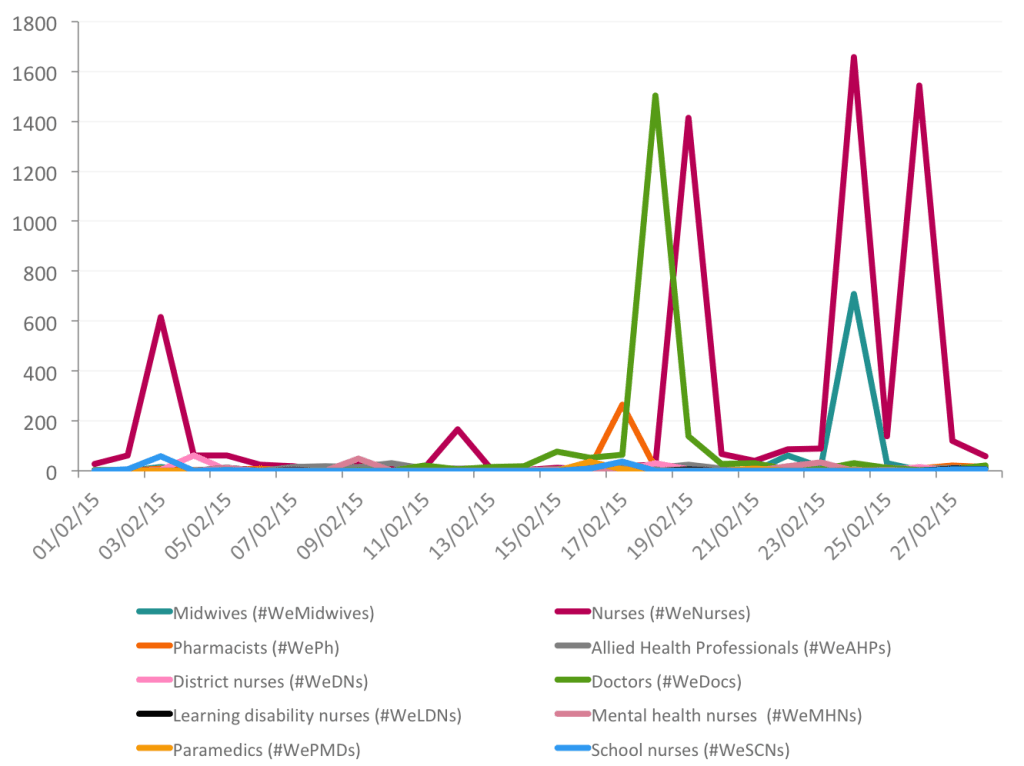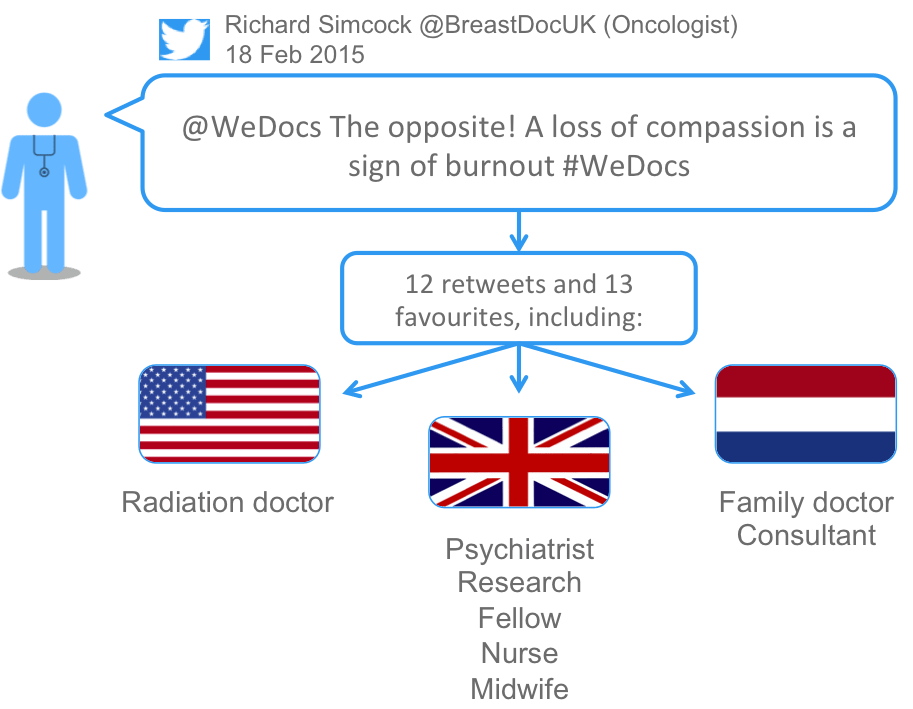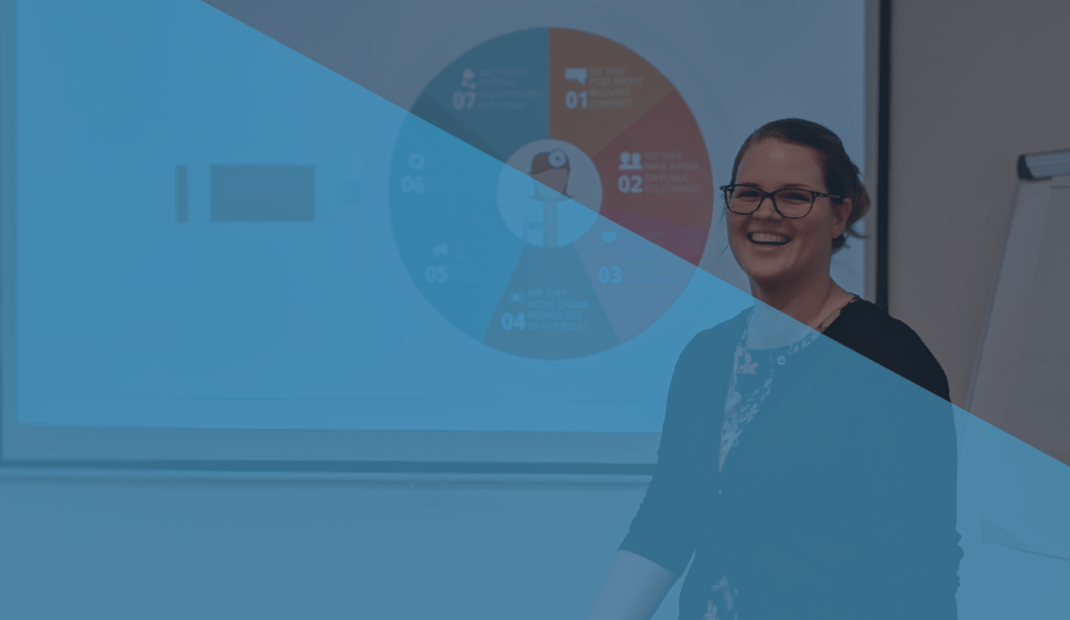Recent studies show that nurses are among the most active medical professions online, and they are frequently looking for new ways to be able to connect with their peers through social media. After Teresa Chinn (@agency Nurse) started a virtual community of nurses in public social media called ‘WeNurses’ to facilitate better communication between nurses, it began to quickly gain popularity through its Twitter account and regular virtual chats. Now named WeCommunities, the model has expanded beyond nurses, and has become a thriving community for healthcare professionals and other individuals passionate about health. While there are a large number of dedicated community sites aimed at the online healthcare professional population that utilise a wide variety of platforms for user interaction, WeCommunities sets several great examples that are worth highlighting.
- Fostering collaboration through innovation. An excellent example of this is the frequent tweet chats run by the community. These are discussions on Twitter that are focused on specific topics at set times, and are usually led by healthcare professional volunteers from WeCommunities. Due to the open nature of the platform and encouragement from the organisers, anyone can monitor or join in the conversation through the WeCommunities site, or simply by following the relevant hashtag on Twitter. For example, the hashtag #WePh is used when there is a pharmacy tweet chat occurring, and participants will append this hashtag to their tweet to indicate that they are taking part. While forums are a great way to discuss topics with your colleagues, tweet chats offer maximum engagement on a specific issue from a variety of roles combined with a smaller time investment, which can be helpful in the life of today’s busy healthcare practitioner.

WeCommunities hashtags used in February 2015 indicate when chats were being held, including a cooperative #WePh case study about a COPD patient on February 17.
- Moving towards a multidisciplinary model. In WeCommunities it is recognized that while it is important to have a focused group, different role types may offer a fresh perspective and valuable contribution to the tweet chats. This applies not only to outside participants but also to members of subsections such as paramedics (WeParamedics) or doctors (WeDocs). Commissioners are a notable group on the site, and chats have also seen patients themselves and others who are interested in health get involved. Furthermore, while the content on WeCommunities may be sometimes focused on issues within the NHS, participants from other countries are encouraged to connect. Vernon Dutton (@nursingpins) from New Orleans, who displays the WeNurses logo in his Twitter profile picture, is one of the international medical practitioners who are part of the community.
 A #WeDocs tweet reaches an international and diverse audience in the USA, UK, and the Netherlands.
A #WeDocs tweet reaches an international and diverse audience in the USA, UK, and the Netherlands.
- Inspiring the creation of communities in niche areas. While nurses, pharmacists, and doctors form a large part of WeCommunities’ population, different role types have been invited to become part of WeCommunities. These include: learning disability nurses, midwives, school nurses, Allied Health Professionals, and mostly recently nurses caring for children and young people. Again, these are led by volunteers and have their own Twitter chats. Since these specialties may not have as many practitioners as some of the wider groups in the community, aiding them to find a voice online fosters a stronger community spirit and opens doors for everyone to learn from others that they may not speak with on a regular basis.
We are very excited today at weCYPnurses HQ as tonight is our very 1st chat. It would be great if you could join us! pic.twitter.com/erT8rAaN59
— WeCYPnurses (@WeCYPnurses) March 10, 2015
The children and young people nurses Twitter account prepares for its first tweet chat.
-
- Supporting future digital leaders through a flattened hierarchy. While ‘millennials’ or ‘digital natives’ – those who grew up in a digitally-connected age – may be quick to adopt and use new technology, many are not yet aware of the positive impact social media can have in their professional life. WeCommunities has recently experimented with having a student nurse tweet from the @WeNurses account during a discussion. It was a success, and a new initiative called #StudentNight will now take place every six weeks, giving student nurses the opportunity to host their own tweet chats on topics that interest them. WeMidwives are also looking for passionate student volunteers to join their team. While there is an encouragement for novices to join into the conversations, more important is the emphasis on showing them that they can be capable leaders as well.
@Bartontd I am trying to set up a mentor/student/academic board at uni to share best practice and regular reflection sessions. #wenurses — Rara Rouge (@rararougemakeup) February 26, 2015
3rd year nursing student in Glasgow is inspired to set up a nursing panel at their university.
- 5. Utilising the knowledge base of the community to teach best practices to others and improve healthcare systems. Some healthcare communities that involve patients and/or doctors may be created to offer support through connecting with similar individuals, provide answers to questions, and discuss health in general,but few try to drive change at a higher level. In addition to providing resources on the site in the form of a “Twitterversity”, WeCommunities draws on the experience of its members to run workshops and seminars for those interested in how to effectively introduce social media into their working life. WeCommunities has also helped organisations such as Public Health England and health services by facilitating hosted chats that give organisations direct access to the community of healthcare professionals.

WeCommunities has assisted a number of organisations in the UK.
It is inspiring to see how passionate WeCommunities participants are about their daily work and their online engagement, which will ultimately benefit patients and practitioners alike. As digital technologies become more common in medical settings, support and education around social media becomes a fundamental part of maintaining the spirit of innovation in health, and this is a community that embodies that spirit.

